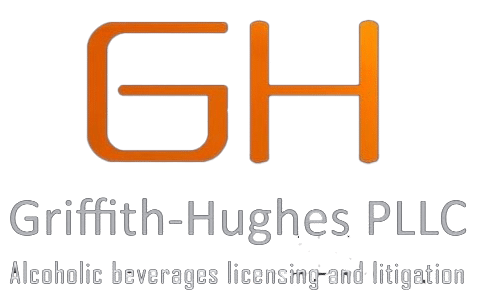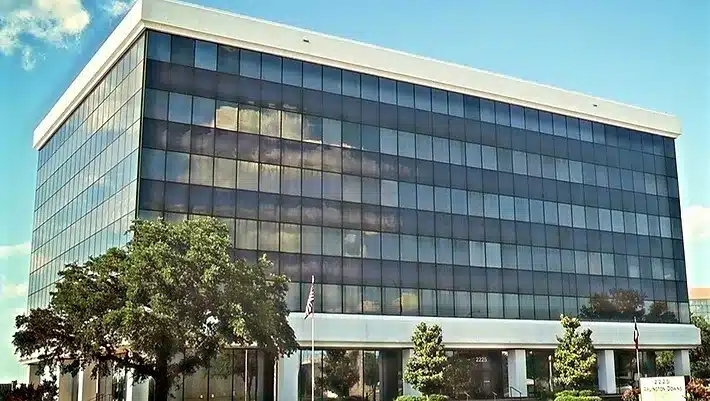
We have due process concerns regarding proposed draft rule 34.1(c) and 34.10(a), along with recommendations for consideration of drafting additional rules to provide additional procedural due process safeguards by way of statute of limitations, and timely disposition of administrative violations, as well as timely disposition of licensing applications.
Proposed Rule § 34.1(c)
“Written warnings. A written warning is an administrative notice … documenting a violation the Code or commission rules and .. is counted as a violation for purposes of bond requirement or forfeiture under Chapter 33 of this title”
In the absence of an executed written settlement agreement and waiver from the licensee or permittee, this rule is not only appears invalid from a due process perspective, but also subject to abuse and arbitrary action, and presents a trap for the unwary permittee or licensee.
Violations resulting in a suspensions or cancellation require the execution of a Settlement Agreement and Waiver (Form 5-15). This document informs the permittee or licensee what their rights are, and consequences of entering to a settlement with the Commission.
Relevant portions of the waiver agreement include –
I acknowledge that the Commission will I make a finding that the above listed violation(s) occurred.
I WAIVE MY RIGHT TO HAVE AN ATTORNEY, MY RIGHT TO AN ADMINISTRATIVE HEARING, MY RIGHT TO A RE-HEARING. AND MY RIGHT TO APPEAL. Initial: ____
The above violation(s) will become a part of my license/permit history.
I must comply with each requirement of this agreement when an order is signed by TABC.
The signed order will be mailed to the license/permit holder.
THIS AGREEMENT MAY BE REJECTED BY THE EXECUTIVE DIRECTOR OF THE COMMISSION OR THEIR DESIGNEE.
I will be given an opportunity to have an administrative hearing if this agreement is rejected.
I may rescind this agreement within three (3) calendar days from the date of signature by giving written notice to the TABC. This agreement may result in the forfeiture of any conduct surety bond I have on file.Initial: ____
The performance bond currently on file will be forfeited and a replacement performance bond must be provided. For Bexar, Dallas, Harris, and Tarrant Counties Only. Initial: ____
A warning for a Wine and Malt Beverage Retailer (BG) operating in the Bexar, Dallas, Harris or Tarrant County area could result in the death penalty. Suppose that BG retailer has two prior violations each of which has resulted in forfeitures. The Commission issues a warning for a low-level violation such as an outdoor advertising (Tex. Alco. Bev. Code § 108), or failing to display a permit or license (Tex. Alco. Bev. Code §§ 11.04 and 61.01), or failing to post a required sign (Tex. Alco. Bev. Code §§ 11.042, 26.05, 61.111, 71.10, 104.07, 16 Tex. Admin. Code § 31.4). A seemingly innocuous violation could result in the forfeiture and cancellation of the permit. See Tex. Alco. Bev. Code 11.61(b-1), 61.71(l), and 16 Tex. Admin. Code § 33.42(d). Is the Commission going to seek a waiver of rights with appropriate warnings as with offenses resulting in suspension and cancellation, or issue a warning and prey upon the unsophistication of the retailer?
Proposed Rule § 34.10(a)
“… Base penalties may be augmented or discounted based upon the number of violations and other circumstances surrounding the violation, according to the commission Penalty Policy in effect on the date of the issuance of the Notice of Violation.”
As written, this rule appears to violate state and federal constitutions, because it allows the Commission to retroactively impose a greater punishment that the original punishment existing at the time of the offense.
Tex. Const. art. I, § 16 states –
BILLS OF ATTAINDER; EX POST FACTO OR RETROACTIVE LAWS; IMPAIRING OBLIGATION OF CONTRACTS. No bill of attainder, ex post facto law, retroactive law, or any law impairing the obligation of contracts, shall be made.
U.S. Const. art. I, § 10 states –
No state shall … pass any … ex post fact Law …
“The term ‘ex post facto law’ literally means any law passed ‘after the fact’ or commission of an act, which retrospectively changes the consequences of such act. Grimes v. State, 807 S.W.2d 582, 583-584 (Tex. Crim. App. 1991). “Legislatures may not retroactively alter the definition of crimes or increase the punishment for criminal acts.”. Grimes at 586 (citing Beazell v. Ohio, 269 U.S. 167, 46 S.Ct. 68, 70 L.Ed. 216 (1925). See also Lindsey v. Washington, 301 U.S. 397, 401, 57 S.Ct. 797, 81 L.Ed. 1182, 1186 (1937) (Retroactive increase in punishment for a crime that has already been committed is forbidden under the U.S. Constitution.)
Tex. Alco. Bev. Code § 11.641, the enabling statute is not retroactive either.
Because neither the Code nor rules impose any statute of limitations (which are addressed in a separate section below), unreasonable delay the initiation of an administrative case increases the penalty. More importantly, the new penalty regime allows for enhancements well beyond the base penalty and could conceivably run into six-thousand dollars and higher.
Quick comparison between the maximum penalty for the first violation under the old rule (which was repealed March 1, 2021) and the proposed rule drive the point home. Offenses such as Permit Consumption of Beer at Off-Premise Location, Sale to Respondent on Delinquent List, and Storage of Alcohol off of Licensed Premises have a maximum penalty of $1,500. Under the new proposed rule, the maximum penalty is $6,000 plus any perceived economic benefit to the permittee or licensee. Even a public safety violation such as Place or Manner: Over-serving, which is often associated with Sale to an Intoxicated Person carries a maximum penalty of $3,600 under existing rule. Under the proposed rule, the maximum penalty is $6,000 plus any perceived economic benefit to the permittee or licensee.
Additionally, the Commission can continue to populate the list with additional violations (including moving existing violations from Rule 34.2), and in the process dramatically increase penalty of offenses.
Statute of Limitations and Time for Hearing Rights:
Proposed Rule § 34.11
In our anecdotal experience, we have found considerable delays in licensing decisions, prosecution, and disposition of cases. Drafting of such rule is consistent with the obligations of the Commission. See Tex. Alco. Bev. Code § 5.31(b)(4)(“The commission shall ensure consistent, predictable, and timely enforcement of this code).
The purpose of statute of limitations to promote diligent prosecution of actions and limit prejudice to the defense due to delays in prosecution of the same. Memories may fade, records maybe become lost, and witness may become unavailable over the passage of time. Additionally, this has an administrative benefit to the agency, because it prioritizes resources.
Statute of Limitations are common place for civil and criminal proceedings. See, Tex. Code Crim. Proc. § 12 et seq. (Three years for most felonies, Two years for misdemeanors) and Tex. Civ. Prac. & Rem. Code § 16.002-.0045 (One to four years depending on the cause of action). At least one administrative agency has a four-year statute of limitations on prosecution. See 22 Tex. Admin. Code § 153.20(f) (“The [Texas Appraiser Licensing and Certification] Board may not investigate a complaint submitted to the Board more than four years after the date on which the alleged violation occurred.”)
Speedy hearing, a concept related to timely enforcement, serves two important functions. First, timely prosecution is important in protecting public safety. Unreasonable delays frustrate the Commission’s mandate to protect public safety and deter violations of the Code. See, Tex. Alco. Bev. Code § 5.31(b)(1). Business facing suspension or cancellation can continue to operate during this period. Second, original applicants, who have no license or permit, and may be paying rent and have other ongoing expenses can be have their applications held up indefinitely with no recourse. If the Commission learns after the fact there are issues with the qualification of a permittee or licensee that could not have been discovered in a prescribed time frame, other tools exist including but not limited injunctive relief under the Code’s general injunction statute, see Tex. Alco. Bev. Code § 101.01, injunctive relief under the Code’s nuisance statute, see, Tex. Alco. Bev. Code § 81.007, immediate suspension order the Emergency Order of Suspension statute, see Tex. Alco. Bev. Code § 11.614, , in addition to cancellation of a license or permit under the disciplinary provisions of Tex. Alco. Bev. Code §§ 11.61 and 61.71 (so long as the Commission is diligent in prosecution and issuance of an agency order).
Finally, even when there is a hearing, and proposal for decision (“PFD”) is issued by an Administrative Law Judge, there is no timetable for resolution of the case by way of an agency order under existing statutes or rules. Non-exhaustive list of examples (registration required) include –
Rebar, SOAH Docket No. 458-19-0911 PFD issued December 11, 2019, agency order issued May 21, 2021. (1 Year, 5 months, and 10 days)
Regulators, SOAH Docket No. 458-20-1472, PFD issued January 21, 2020. Agency order issued March 11, 2021. (1 Year, 1 month, and 18 days)
Palms II Lounge, 458-19-5611 PFD issued December 3, 2019. No agency order to date. (2 years, 7 days, and counting)
To address the above concerns, I would recommend that the Commission consider drafting a rule which imposes statute of limitations and timelines for disposition of cases. We propose the following rule, to start the conversation.
Rule § 34.11. Statute of Limitations and Time for Hearing.
(a) The Commission may not investigate a complaint more than two years after the date on which the alleged violation occurred, except as specified in subsection(b).
(b) There is no time limitation for the following complaints:
(1) Unlawful use of a license or permit, and subterfuge as defined under Chapters 11.05, 61.16, and 109.53 of the Alcoholic Beverage Code;
(2) Tied House and related prohibited interests as defined under Chapters 11.47, 11.48, 22.06, 24.05, 61.44(a), 61.45, and 102, Subchapter A, of the Alcoholic Beverage Code; and
(3) Human Trafficking.
(c) An administrative notice of violation, may be issued by the investigating unit within two years from the date of the commission of the offense and not afterward.
(d) A hearing on the notice of violation shall be held within 120 days from the date of the original notice of violation issued by the investigating unit and not afterward, unless waived in writing by the license or permit holder, otherwise the violation is dismissed with prejudice by operation of law.
(e) A hearing on an order denying an application for an original application shall be held within 90 days of the applicant’s hearing request to the Commission, unless waived in writing by the applicant. Supplemental and subordinate applications for existing licenses and permits shall be treated as original applications for purposes of this subsection. If a hearing is not held within the time limits, the Commission shall issue the permit.
(f) A hearing on an order denying an application for a renewal original application shall be held within 120 days of the applicant’s hearing request to the Commission, unless waived in writing by the applicant. If a hearing is not held within the time limits, the Commission shall issue the permit.
(g) The Commission shall make docket requests with the State Office of Administrative Hearings as soon as practicable notwithstanding Tex. Gov’t Code 2001.051, to ensure that the parties have reasonable opportunity to conduct discovery, and adequately prepare for hearing within the above time limits.
(h) The Commission shall issue an agency order no later than the 120th day after the issuance of the proposal for decision and the deadline for filing exceptions and replies has passed, or the proposal for decision is adopted as the agency order by operation of law.
(i) This subsection does not apply to proceedings under Chapter 11.614 of the Alcoholic Beverage Code.
Conclusion
We respectfully request that the Commission consider the due process implications of the rule changes, i.e. passive issuance of warnings without notice and waiver of important hearing rights, and retroactive increase in penalties for violations, and implement additional procedural due process safeguards so original applications and violations are timely disposed of, for the foregoing reasons.
What You Can Do
If you disagree with the direction the Commission is going with the proposed changes to the rules, make your opinion heard by submitting public comments to rules@tabc.texas.gov, participating online at the next Stakeholder Meeting on February 11, 2022 between 10:00a and 11:30a, and following the progress of the same by signing up for Industry Briefs and Industry Notifications. Also, keep track of stakeholder meetings and commission meetings on the Commission’s website, and make your voice heard.








